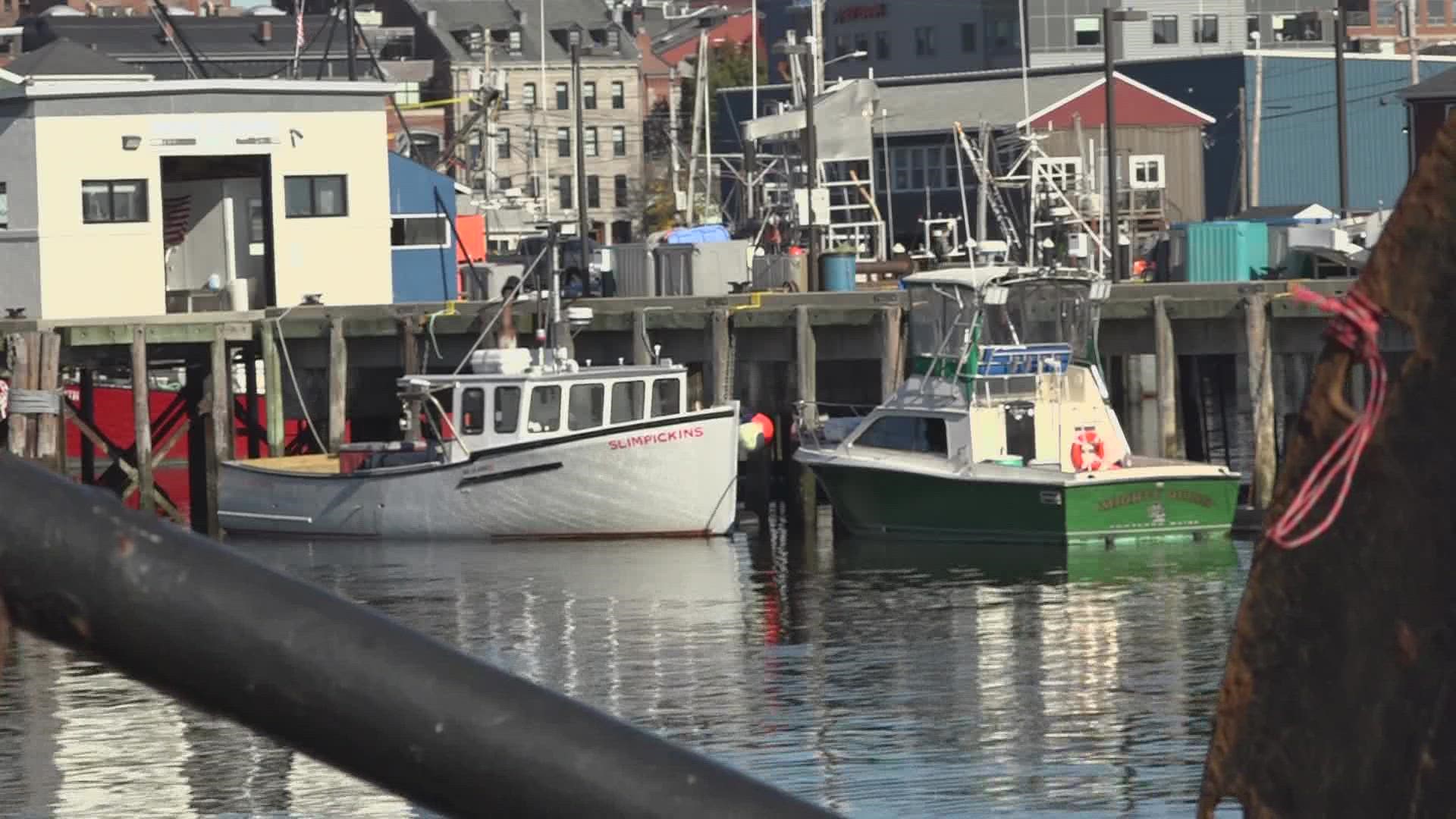BRUNSWICK, Maine — It is no secret Maine fishermen have a tough job that has only gotten tougher in recent years.
"It's a lot sometimes," Monique Coombs with the Maine Coast Fishermen's Association said.
Coombs' family knows the firsthand challenges those in the state's fishing industry face.
The current political climate surrounding new federal regulations designed to protect endangered North Atlantic right whales has brought many to their breaking point.
"It's just infuriating," Coombs said. "We have to think about marine resources and the ocean, yes, but fishermen as human beings especially so."
That political and legal fight combined with the stressors of the COVID-19 pandemic is why the Maine Coast Fishermen's Association started its "Fishermen Wellness" program.
The initiative is designed to connect commercial fishermen statewide with resources to support their mental health and well-being. It provides up to three free sessions of mental health treatment.
"This is a traditionally underserved community," Julia Bergquist told NEWS CENTER Maine.
Bergquist, a licensed clinical social worker with Oasis Free Clinics in Brunswick, is part of a network of clinicians who work with fishermen and their families.
She said the anxiety and stress do not just take a toll on the fishermen but also on their families and their communities.
"There's certainly an anecdotal and statistical increase in both anxiety and depression that we're seeing and hearing," Bergquist said.
The fishing industry is overwhelmingly male, which means they are at greater risk.
According to the National Institutes of Health, men are at higher risk of mental illness, drug use, and even suicide.
Nationwide, men are four times more likely than women to take their own life, according to the American Foundation for Suicide Prevention. In Maine, men are five times more likely.
According to Bergquist, the impact of the federal regulations controversy is only heightening the risk.
"The lack of control surrounding the process has certainly contributed to an increase in anxiety, depression, and suicidal risk factors," she said.
For advocates like Coombs, the fight to help Maine lobstermen is personal.
"I connect with it pretty deeply because I struggle with depression and anxiety and I know how hard it is to talk about as well as manage," she said.
Coombs and Bergquist are working together to break down barriers to allow more fishermen and their families to get the help they need.
From trainings to educate providers on the industry to connecting with industry leaders, it is about starting the conversation around mental health in a community that prides itself in its strength.
"I hope fishermen know they aren't alone," Coombs said. "There are people who want to support them."
You can learn more about the "Fishermen Wellness" program here.

